#eat the rainbow
Text

Fennel Tofu Chickpea Salad (Vegan)
#vegan#appetizer#lunch#salad#avocado#fennel#tofu#cantaloupe#sugar snap peas#arugula#tomatoes#chickpeas#almonds#garlic#apple cider vinegar#mustard#olive oil#maple syrup#chili#black pepper#sea salt#eat the rainbow
15 notes
·
View notes
Text
They have two bathrooms and this is the only thing I can imagine


121 notes
·
View notes
Text

Green Fruit Platter (Vegan)
#p#good eats#true nourishment#food centric herbalism#eat the rainbow#wfpb#whole food plant based#raw vegan#vegan#vegetarian#fruit platter#nutritarian#sidewalkchemistry
90 notes
·
View notes
Text
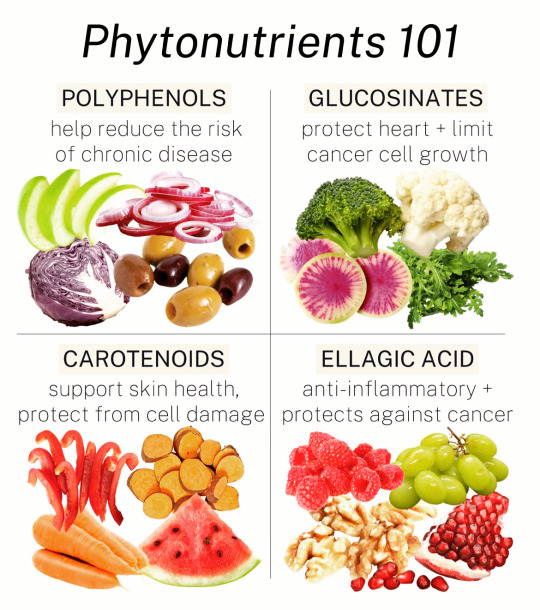
#nutrition#phytonutrients#polyphenols#disease management#disease prevention#Disease fighting#antiinflammatory#cancerfighting#eat the rainbow
161 notes
·
View notes
Text

Pumpkin in Korean
#vegan#appetizer#lunch#salad#cauliflower#corn#dried cranberries#green onion#salad dressing#poppy seeds#ginger#lemon#maple syrup#olive oil#black pepper#sea salt#eat the rainbow
49 notes
·
View notes
Photo

#vegan#salad#healthy#raw vegan#eat your greens#clean eating#diet#nutrition#plant based#healthy meal#healthspo#fitblr#fitspo#eat the rainbow#eat your veggies#healthy lifestyle
251 notes
·
View notes
Text
Summer Shrimp Salad with Creamy Avocado Dressing
The delicious Summer Shrimp Salad with Creamy Avocado Dressing is a refreshing and satisfying dish that bursts with flavors. This salad combines perfectly cooked shrimp, couscous, and a medley of fresh vegetables, creating a harmonious, delicious dish.
The delicious Summer Shrimp Salad with Creamy Avocado Dressing is a refreshing and satisfying dish that bursts with flavors. This salad combines perfectly cooked shrimp, tender grains, and a medley of fresh vegetables, creating a harmonious blend of textures and tastes.
The star of this salad is the creamy avocado dressing. Made with ripe avocado, tangy Greek yogurt, zesty lemon juice, and…
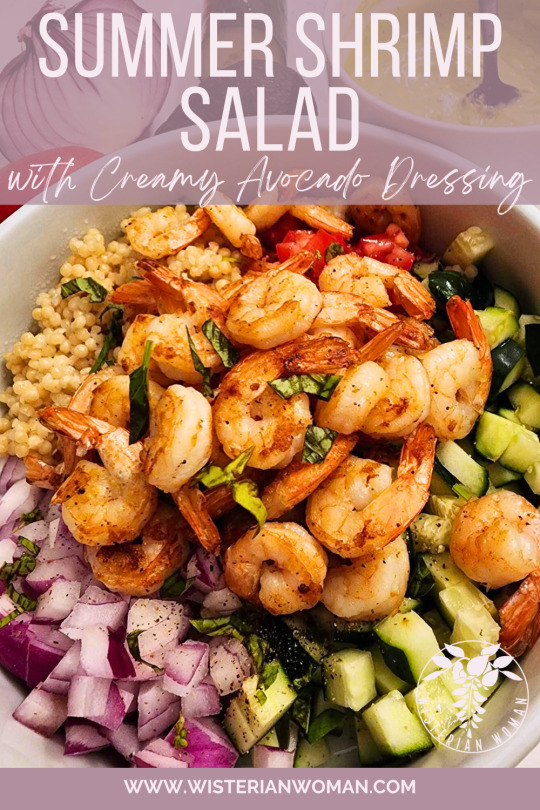
View On WordPress
#eat the rainbow#fitness journey#flavorful#Food#food blog#grain bowl#healthy habits#healthy recipes#Mediterranean food#Mediterranean recipes#Mediterranean salad#protein recipes#Recipes#shrimp#shrimp recipes#shrimp salad#summer recipes#summer salad
55 notes
·
View notes
Text
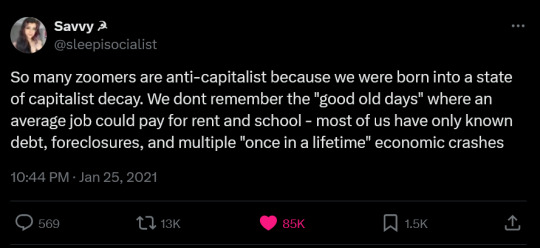
#anti capitalism#communism#leftism#socialism#anarchy#eat the rich#eat the rainbow#twitter x#eat the 1%#eat the fucking rich#eat the rude#kill the rich#technology#wealth#wealth inequality#business#opportunities#planning#leadership#profit
13 notes
·
View notes
Text
Shakshuka (:


During my time in Israel, I happened across an eggy-tomato breakfast dish that changed my life forever. I had no idea what it was called then, but once back at the states, I scrambled all over the internet until I discovered it’s name and found a recipe that spoke to my soul. Now I can savor the taste forever.
This, ladies and gentlemen, is my first take on Shakshuka 🍅
#food#vibrant#eat the rainbow#food photography#healthy#aesthetic food#christian#tomatoes#jerusalem#Israel#israeli food#meditteranean#mediterranean food#made from scratch#cooking#food inspo#food inspiration#breakfast#vegitarian#vegetarian breakfast#good eats#clean eating#photography#christian blog#aesthetic#jesus#try something new#food photographer#healthy food
59 notes
·
View notes
Text

In my attempt at "eat the rainbow", this morning I begin with the color tan 😉
12 notes
·
View notes
Text
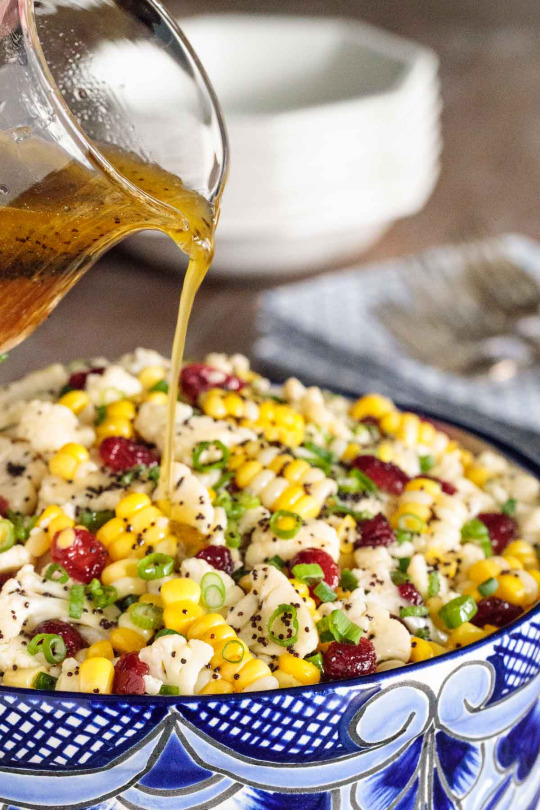
Poppyseed Cauliflower and Fresh Corn Salad (Vegan)
#vegan#appetizer#lunch#salad#cauliflower#corn#dried cranberries#green onion#salad dressing#poppy seeds#ginger#lemon#maple syrup#olive oil#black pepper#sea salt#eat the rainbow
539 notes
·
View notes
Text
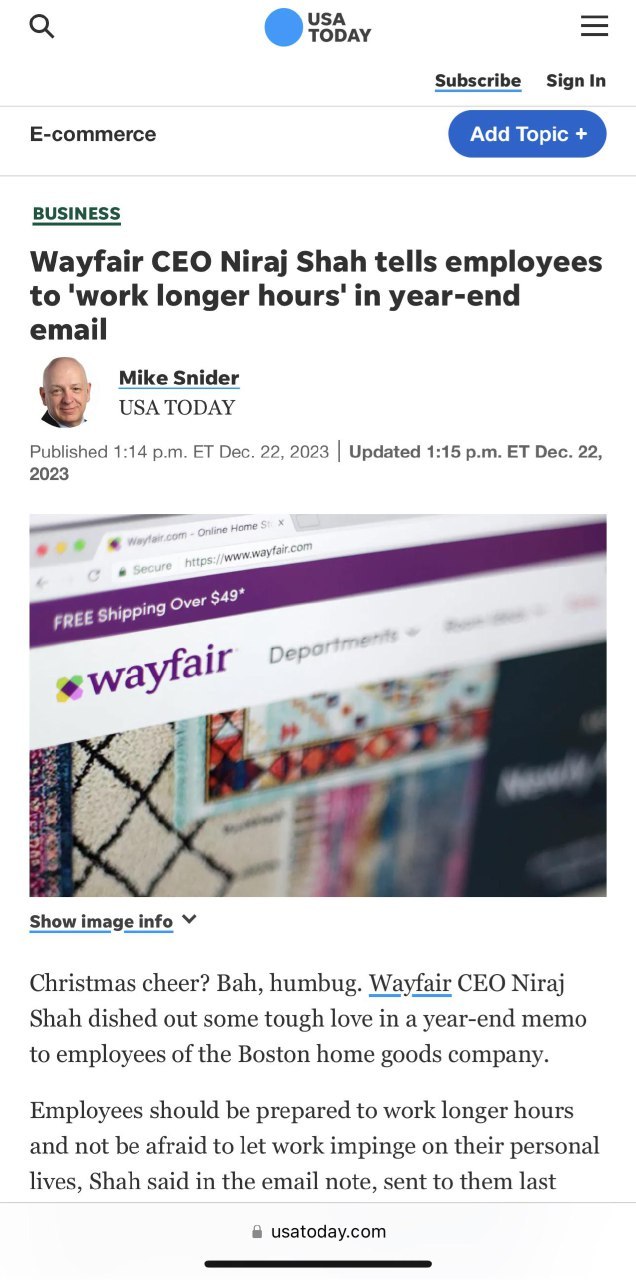
#wayfair#bank of america & wells fargo among bank ceos pushing back on new regulations after warning of impact on customers#fuck ceos#ceo steve rogers#ceos#banana republic ceo calls its new change ‘pinnacle’ of luxury and shoppers will immediately see the difference#h&m ceo confirms retailer is being forced to hire more security across the us as shoplifting spikes#ceo of beloved coffee franchise with 127 stores in 29 states speaks out to announce major expansion change outside us#ceo#nirajshah#slavery#wage slavery#anti slavery#antiwork#slaves#slave#eat the rich#eat the fucking rich#eat the rainbow#ausgov#politas#auspol#tasgov#taspol#australia#fuck neoliberals#neoliberal capitalism#anthony albanese#albanese government#poverty
6 notes
·
View notes
Text






it's citrus season! (our beautiful sunshine bringers while the sun is giving us a little break from its intensity)
#p#citrus#cabin euphoria#winter aesthetic#tablescapes#food centric herbalism#holistic leveling up#leveling up#that girl#green juice girl#glow up#sacred spaces#eat the rainbow#clean eating#fitblr#slow living#soft living#table styling#self healing#seasonal living#sidewalkchemistry
41 notes
·
View notes
Text
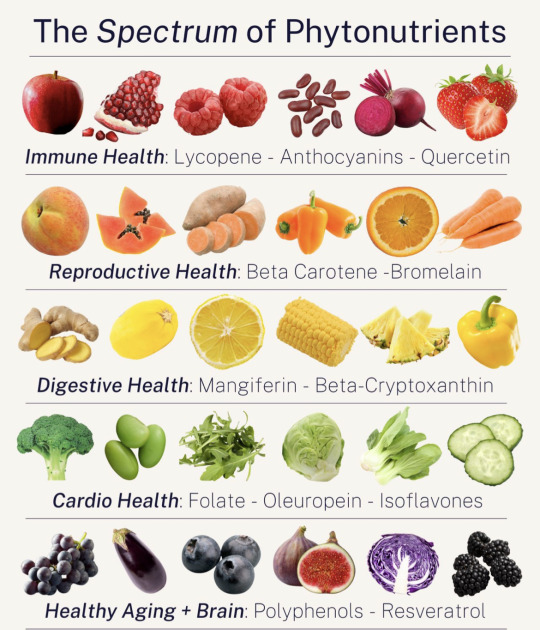
#phytonutrients#cellhealth#cancer fighting#food#Nutrition#eat the rainbow#antiinflammatory#anticancer#fruits#vegetables
138 notes
·
View notes
Text

8 notes
·
View notes
Text
BrBa is just old white men dicking around with the forbidden and idk if everyone already knew this but I'm very late to the party sooooo:
Hank Schrader is not The Hero - The Optics of Breaking Bad
- as of s4 e13 (i know what happens tho so don't bother)
corny ahh title. deal w it. writing this has been upside down 4, 3, double hockey sticks. this is like my 4th draft. live laugh ʟoʙoτomize me.
Hank Schrader is hailed as morally upright, within and independent of the show’s contexts, The/A Hero of Breaking Bad: the True protagonist. It’s not a position I miscomprehend or refute (Hank is granted idealisation from an unideal world), in fact its synthetic with my lens. Hank is a poʟice officer, well off, cisʜet wʜiτe man. He is both the conventional protagonist and the everyday man (Youtuber Aleczandxr notes this). A familiar figure that emulates; and evokes conventional American Dream aspirations. Audiences have an affinity for that which they identify with. And that is our conventional Euяoceиtяic narrative (poʟice officer, well off, wʜiτe cisʜet), one I think is inherently persecuting (as to facilitate priviʟɢe [ — the intersection of defining and prevalent social and surplus marginalizing systems/edificial societal mechanisms through aʙʟeιsϻ, ʜoϻopʜoʙιa, яacisϻ, classism etc]). This isn’t a consequence, rather a mechanism, one people embrace per convention.
Hank is thusly: The American Hero, but not The Hero.
Here’s the [obligatory (very skippable)] full scope of Hank Schrader: (summary for the detailed list: ur boy porkie manifested destiny or whatever.) —Hank is well off, liked, chemically balanced, no personality, mood or neurological disorders, middle aged, in good health/not immunocompromised, only temporarily disabled but otherwise ablebodied, experienced, has access to resources and opportunities, no prison record, good wife, stable relationships, supported, married, financially secure, able to work/working, largely unaffected by fatphobia/average size, mentally well (he is suffering from ptsd but he's relatively ok), an underdog of sorts/not too elevated in status, "civil[ized]", has a position of power, admired, holds conventional values, does societally encouraged/praised things, comfortable, has consistent cash flow, a stable home, employed (and when unemployed, still has opportunities from his pseudo-former employment), presumably from a "good" home, [monoracially/visibly] wʜiτe, english speaking, from america/the global north, a citizen, a [seemingly] cisʜet man, neurotypical, not an addιcτ (i think. . . minerals.), housed, working in corporate, working within capιτaʟisτ bounds, benefits from capιtaʟism, is an arm of the state through carceral punishment, and is gender conforming, etc (probably). —
He is the posterboy for our idea of the everyday man, [he’s] what is platformed by society. The face of every cop movie, buddy comedy, success story. The cool uncle, the funny cop, the good guy. Somebody with potential and the opportunity to win. Inherently coloured as good, deserving, to be protected and an audience surrogate/point of empathy.
Though there is some obfuscation with colouring Hank as intrinsically good, as anticipated accusations of overthinking, sensitivity, harmlessness, time periods etc are sure to shield him.
And I still don’t disagree.
It’s part of his package, a facet of those who would fight to protect what they love and a loved facet of what they protect. Hank is after all - mundane, benign, and as such all that he does is coloured with that levity (the interpersonal/social conflated with the societal). The brushing off, the sidelining and the normalising. He is the normative, facetious functioning of a Euяoceиtяic system. He allows for indulgence and mindlessness, a comfort in the consɜяvaτιve. The most honest and even insight into the accepted optics of the everyday. As I wrote in my previous drafts: Hank is then, to me, [not a Messiah, but] a conduit through which the societal intricacies of Breaking Bad are elucidated & is a holistic representation of BrBa socially, alongside its accompanying norms. Meaning: the optics and scope of the universe and its circumstances.
Opposingly, those diametric to Hank, The Other[s] - comprising the [neglected] bulk of “us”/our population: poc, druɢ addicts, criminals, financially insecure ppl, the impoverished etc (hierarchical levels/positions separate the outliers too - eg. Gus is blk, but rich, or Jesse is a criminal, but wʜiτe); are beneficiaries of mistreatment [through him and his system], dehumanized (due to their position being conflated with inherent moral failing. failure to conform to accepted standards means failure to be good) where Hank is The ultimate huMan [as one so human/so good, Hank sees it as his rite, and has been bestowed with the power to judge, use, punish and execute those who fail at righteousness by not being like or as good as him], relegated and commodified: backdrops through which purpose is assigned.
Hank being rendered a microcosm necessitates nothing is exclusive to him however; and so goodness is granted based on proximity or adherence and support of those with [at least some] conventional characteristics.
His antithetical contradictions (representationally abounding in canon) however, are those I see as the humane center and sympathetic party[s] of BrBa (they are without agency, and compelled by the world around them. pure in a sense, their true sin having been born who they are). For the ‘us of “us”’ (the Everyday Man among the rest of a disenfranchised majority) who are aligned to the secluded relatability of BrBa: [ - those bubbled within the narrow segment of our population living firmly within upper class/”civil” society] BrBa is about revelry, playing at the forbidden and costuming yourself in it. As I explored in drafts previous: There was a conflict in interest and feelings in Hank’s clash with Walt (convention vs freedom, ideal vs risk. — People flirting with the idea of danger/lawlessness - adorned by another wʜiτe man they can identify with (so its not too bad). An equal battle in which the moral nature, alignment and priority of the viewer is teased). The platformed curators of BrBa aren’t comprised of or inclined/prioritizing those predisposed to [aforementioned] exploitations compounded through identity, circumstance and powerlessness (in and out of canon). Being underprivileged, impoverished, struggling and having inaccess to luxury or comfort are abstract or at least somewhat distant to the comfortable average person who is BrBa’s us.
The viewers who rendered BrBa a piece of siɢϻa revelry identify with Walt, but they respect Hank and/because they are him [rn] (i.e. he feeds into siɢϻa tenets and he’s the personification of the system).
This disregard, disassociation and commodification [from the empowered] is a salient facet of Hank's aforementioned dehumanization. Firstly, Hank’s occupation is that of an agent of the for profit prison industrial complex that disproportionately targets those he dehumanizes, who are oftentimes born into restrictive positions of oppяɜssioи and dehumanization (left to diɜ, starve, work for minimal pay, ɑbuse druɢs, be tɜrrorizɜd by gangs etc), secondly, my first recollection of Hank (which was in his first scene me thinks) is him saying the aиτi-mexican b-sʟuя, and later saying the [siиopʜoʙɩc] c-sʟuя, not to mention his frequent semi self directed abʟɜιsτ sentiment.
This, like everything, is not unique to him, with Jesse dispensing ʜoϻopʜoʙιc sentiments as well as other sʟuяs and his catchphrase being ʙiτcʜ, Brandon saying the r-sʟuя; (i probably missed other characters), as well as other characters espousing "bigoted"/marginalizing sentiment: Walt listing his son's cerebral palsy as one of his problems (im sure there are costs and consequences for Jnr's [should i call him Flynn?? im going to call him flynn] condition but they're seemingly no more severe in canon [so far] than a child without cerebral palsy), Marie and her 3rd world comments, etc. POC aesthetics also influence the speech, persona and lifestyle of Jesse, Skinny (sksk) and Brandon; (yo), and dogwhistle illicitness and non-normativeness/deviation.
Euяoceиtяicisϻ is never positioned as erroneous or [a] mockery - ‘cracker’ or gringo is never weaponized or employed, “ϻisandяisτ” (aиτi conventional or even aиτi toxic masculinity) disparagement or jokes are never propagated, wʜiτeиess is never funny. Wʜiτeиess is never commodity, never stripped of its humanity to be worn and discarded and used.
The only time it is, is in Texas[???] (or México?? im still confused about where Hank went). — BrBa is already heavily influenced by poc culture, especially Latin culture/México, with the only poc group (and the least platformed) unmarred by illicitness (imo/as far as i can see) being Native American ppl (who are called indians in canon just to add), but are still used as props and a playing field for the affairs of those within the establishment (cooks and poʟice investigations, ʙяiʙinɢ and tip offs, ϻuяdɜяɜd bodies and sτoʟɜn belongings).
- (obligatory deviant rundown:) Someone like Gus is assumed to be innocent bc of his civility, his class status, his business and his poʟice affiliation (respectability politics). Despite this, he’s heavily suspected by Hank. His criminal activity and empire are seen as objectionable, but the people he affects are negligible and barely helped (funrun lmao) – the war on drugs and controlling and persecuting illicitness and underground establishments are what is seen as actually important. Walter being left to die of cancer by a for profit healthcare system is just, but him dealing to pay for his treatment is objectionable. Saul is unsuspecting due to his agreeable personality, charm and conventionality. The deviant life that is claimed by the system is fine (Tuco, ATM guy, the twins, Gale) but Hank’s grievous injury is evil and horrific. The justifications Walt supplies for meth are warped but Hank’s indulgence in the taboo through the cigar is recreational fun. Little children can be neglected by impoverished crackhead parents that will never be afforded help, but are seen as rotten apples when they grow up to become Combo’s or live as Tomas’. Someone like Jesse is braggadocious and recalcitrant and wears the demeanour and conduct of the disenfranchised to intimidate and rebel, along with his friends, which doubly signifies their criminality, as well as being heavily involved with poc. Jesse aims to sell to the impoverished and vulnerable people in rehab, and he breaks the sobriety of his close friends. Andrea is dissuaded from drug use by Jesse (a pink man), and only has this done when Jesse discovers her child, who he sees as good and unworthy of exploitation or suffering. And most of the “good poc” are in the force, with the others being found within the confines of the criminal underworld or engaging in illicit activity like the sτoͷɜя janitor. — Deviance itself is seen as an antagonist force that is to be purged and punished, and deviants are seen as less valuable, and as aforementioned, less human than those whose harm is validated, prioritized and platformed.
So, Hank finds himself in a spanish speaking, poc centric region in which his staunch and unflinching wʜiτe[hegemony] alienates him. People speak Spanish despite and because of him, he is mockingly called wʜiτe boy and told to learn the commanding language, he is spoken down to and disregarded by his peers.
The Euяoceиtяic audience, like their audience surrogate, probably feels slighted on his behalf, like the natural order of things has been undeservingly and unjustly slanted.
‘Hank is in a hostile environment in which the people mistreat, belittle and alienate him. He is supposed to/deserves to be on top, he isnt actually supposed to face hardship and adversity’ - are his supporter’s probable reactions.
Well, Hank is getting what he gives.
Hank is visibly uncomfortable and affronted, attempting to brute force this world according to his world’s ways, unable and unwilling to be subsumed and relent to something not his own.
But his Euяoceиtяicisϻ does him no favours. He is faced with the dehumanized as Human. Stripped of his ultimate power and authority - his domineering status as The HuMan. The Hero.
Outside of his little, slim bubble, Hank is just another Euяoceиtяic, wʜiτe cop, and no friend of those he sneers at.
In this way, the typical “wʜiτe person in the hood” narrative we’re so used to, in which the aesthetics of the outliers are appropriated and the natives uplift, embrace and teach the whiboi (white saviorism lite) are more reminiscent of Hank’s Euяoceиtяic predeterminations: the ppl he sneers at are different to him, they’re alien, he doesn’t like their ways, they don’t embrace him/his norm, a norm he considers correct. They’re different. They are wrong.
This elicits more of a: scary outliers feel, the unsafe unknown, the dangerous other- the other as wrongness, an inherent, hostile and anti-wʜiτe/right wrongness (https://www.youtube.com/watch?v=Z1qYecnkrBk).
A guy who went from desecrating the body of a deceased drug dealer of colour and proudly posing with his lifeless body was brought back to earth with Tortuga and his head on a tortoise, and was further grounded by the violence and carnage befalling the officers around him.
Suddenly, a guy who sees it all as bad guys and good guys and boring until it gets fun was faced with the harsh nature of morality and the value of human life, humaneness and the sentience of others.
This ofc did not change him, as he still defensively says that people like Flynn who are in crutches should be in the hospital, which is reinforcing of his previous masking of Flynn’s condition as an accident garnered from him playing football. He mistreats Marie (like all the time. seriously), he treats Jesse as disposable, he mocks Gale and his passions despite his gruesome murder, and is ofc informed by a history of promulgating that the world would be better off without addicts, inferring that they are subhuman, that criminals deserve inhumane treatment and misfortune and treating the suffering of the disenfranchised and their aesthetics as unimportant and less than.
There’s ofc more to say, for example - his aиτi-mexican jokes with Steve and his employees, his reactionary humor, his mistreatment of people with less social power than him like Steve and Marie when he’s feeling disempowered, his humiliation of Wendy, excusing and assisting his kleptomaniac and compulsively lying wife, him getting promoted to Texas before Steve despite being more reckless, the corruption of the DEA thru advising Hank not to tell the truth, bailing out his wife and providing Hank with work after ass*ulting Jesse (as well as their exploitative interrogation practices), his wife’s very aиτi-addicτ sentiment and her readiness to condemn Jesse for Hank, as well as her entitlement and blaming when he was in surgery (it was a trauma response. ik), including other stuff that’s probably slipped my mind. — Hank’s position as someone granted inherent goodness allows for the moralizing of his hypocrisies and vices. He is assumed to be operating from a place of goodness, so the consequences of his actions are good, and the people they harm are deserving.
However, I’ll conclude through saying that the vulnerable, as I’ve touched upon, are equally human, with often limited or no power to subjugate others (and are therefore pure or innocent in terms of their lack of power as oppressors and agents/arbiters of harm).
We see through characters like Jane (a conventional individual) that when given the opportunity, they can thrive, be happy and conform.
Though the potential for conformity is not why I see the disenfranchised as BrBa’s moral heart. I see people who breaking bad truly revolves around: the silent and overlooked victims of the war on drugs, the system and carceral punishment; glimpsed as Jesse sold them blue. I see poor people, some dirty, some homeless, some gaunt and ɑddicτɜd. I see poc, I see immigrants and sickly individuals, children, women, old people. Disenfranchised and marginalized further as they’re sold druɢs, unalived, kept in poverty and imprisoned. All rendered pawns and things that have violence and autonomy enacted on them, despite the crux of the show happening within their space, being interwoven into their world and concerning their people, culture and lifestyles.
People who never got an opportunity to be anything other than what they are (until they were embraced by the system).
I see the disenfranchised as a representation of a struggle for existence and humanity.
As a song I like quotes [Montessori's Own Handbook]:
The ancient philosophical discussion as to whether many of us are good or evil
Is often brought forward in connection with my method
Considering that to leave children free is a dangerous mistake
Since they have in them innate tendencies to evil.
The tendencies which WE stigmatize as evil
Are often merely those which cause annoyance to us adults.
It is we who provoke the children to the violent manifestations
Of a real struggle for existence
And wrest from them the objects of their desire.
Evidently, the question of absolute good and evil
Intuitive ideas
Goes beyond such limitations as these
We can always say that we have made a contribution
To the cause of goodness
By removing obstacles which were the cause of violence and of rebellion
Let us render therefore unto Caesar the things that are Caesar's
And unto God the things that are God's
And unto God the things that are God's
This is the prevailing morality that informs BrBa and our internalization of it. People who may as well be infants under a punitive, guiding authority being expected to conform, provide and assist the mechanism of wʜiτe supremacy.
And therein is born a friction: the stories of the sidelined underclass fighting for the right to exist humanely.
And most importantly, therein lies BrBa’s most sympathetic/empathetic parties, and the disempowered moral center of the show. — Where the evolution (and devolution) of inherently unadultered people takes place.
Hank is no Hero, he is not selfless, he is not noble, he does not fight for the oppressed or those who cannot fight for themselves, he fights for the establishment, and his social praxis is one of Euяoceиtяicisϻ. He is the social and societal edifice of Euяoceиtяicisϻ and the establishment, unmotivated by bettering or elevating others, but by preserving the norm and convention.
There is no True Hero of Breaking Bad. Perhaps glimpses in the actions and lives of those disempowered and attempting to do/be good - Skyler, Andrea, Jesse, Mike, Peter, Brandon etc. (But at the end of the day, they're all human. And despite the norm's classifications: there are no absolute goods or evils)
If i were to go into the detailed complexities of the racial and social nuances and optics of BrBa I’d be here all day and I don’t want to bc its taken me literal daaaayss to write this and I’m tired and I don’t like Hank. I laughed when he got popped. I laughed. Anyways, bye or smth. I hope this made sense. If it didn’t, too bad.
XP
#its a mental breakdown#brba#breaking bad#anti hank schrader#critical analysis#meta#classism#drugs tw#brba s2#brba s4#breaking bad season 4#eurocentrism#watch nobody read this#long post#society#am i allowed to tag this anti wh*te *en#eat the fucking rich#eat the government#eat the patriarchy#eat the rainbow#gustavo fring supremacy#long live los pollos hermanos#blue meth#minerals
19 notes
·
View notes